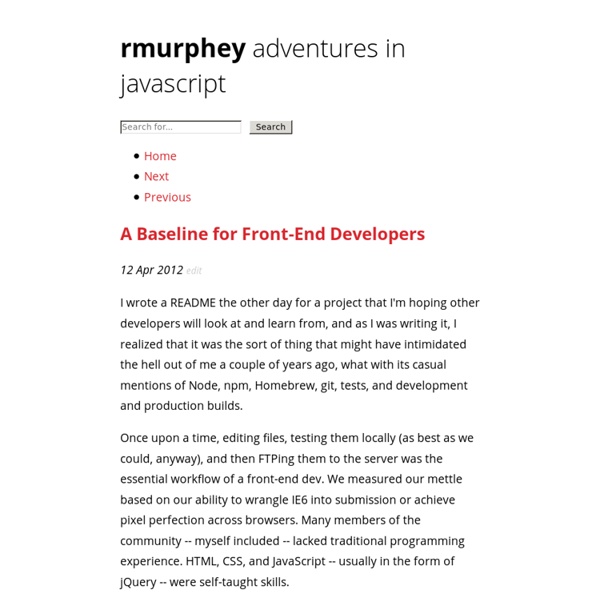A Baseline for Front-End Developers

JavaScript, JavaScript... | by Angus Croll
Adventures in JavaScript Development
Perfection Kills
rmurphey/js-assessment
Related:
Related:



